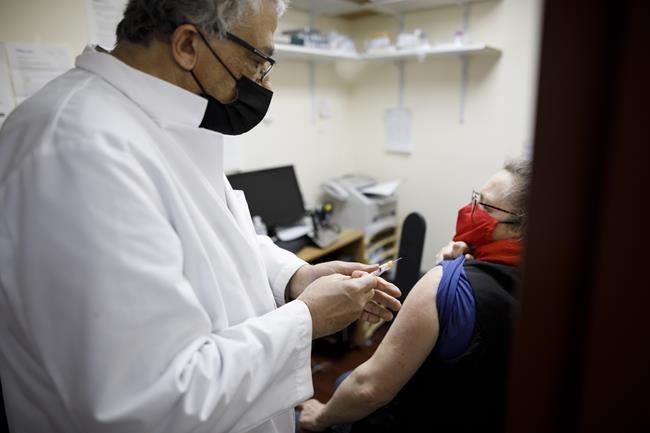The goal of health authorities to try and immunize everybody on a scale unprecedented in the country’s history is not easily accomplished in a province as large as British Columbia.
Vast distances and sparsely-populated regions are adding to the challenges of the COVID-19 vaccine rollout, and no other health region in the province is as vast and as unpopulated as Northern Health.
The entire northern half of the province is home to only about 300,000 people and getting to all of them for the rollout of the public immunization program that began last week with the start of the first mass vaccination clinics has been difficult.
In the latest updates posted Thursday on the B.C. Centre for Disease Control’s online COVID_19 dashboard, Northern Health as of Thursday had received 59,945 total doses of COVID-19 vaccine and had distributed 18,649 of those doses, which represents 31 per cent of the supply. Of the total supply, 15,936 were first doses, 26.6 per cent of the total supply.
By comparison, the four other provincial health authorities had used at least 65 per cent of their vaccine supplies.
Vancouver Island Health was the quickest at getting needles into arms. Of 146,300 doses received by Vancouver Island, 115,786 total doses (79 per cent of total supply) had been administered. In Interior Health, out of a supply of 101,710 doses, 66,239 shots of vaccine had been given (65 per cent).
In the Lower Mainland, Vancouver Coastal had immunized 115,786 people as of Thursday, out of total supply of 146,400 (79 per cent), while Fraser Health had given out 152,096 doses out of its supply of 205,055 doses (74 per cent).
“It’s not slower, but in Northern Health, because of geographic distribution it’s more challenging,” said B.C. Health Minister Adrian Dix. “At a practical level, it’s way easier in Vancouver Coastal and Fraser Health to deliver vaccine.
“I think our staff in Northern Health has been more than fantastic in delivering this vaccination plan to remote communities all over the north. What I would say to the people of the north is they should be proud of the Northern Health teams that are doing that. We have a very significant effort to immunize all indigenous communities and by the end of March that will all be done, which is an achievement.
“The Northern Health performance has been excellent. I think those statistics aren’t entirely fair to them because some of their effort isn’t reflected in those numbers. It’s a big task and they’re taking it on.”
The Northern Health figures posted on the BCCDC dashboard do not include vaccine doses administered by the First Nations Health Authority to northern B.C. residents. As of Wednesday, the two health authorities combined had given out 26,214 total doses to the people of the north.
“It’s complicated because a lot of the doses performed by Northern Health are First Nations Health Authority Doses,” said Dix.
Because of the difficulties of getting to the more remote communities, Northern Health plans to set up vaccination clinics that will make the vaccine available to all adults in those areas, regardless of age. Those clinics will be set up in the next phase starting in April.
“The important thing to keep in mind is we have a smaller population,” said Northern Health spokesperson Eryn Collins. “They’re not sending us vaccine that we do not need. We know who we currently have eligible and who we are immunizing. We are receiving vaccine doses weekly and planning clinics accordingly for the people who are eligible currently to receive vaccine.
“We still have clinics yet to start and it’s based on what we know, the supply we have on hand.”



